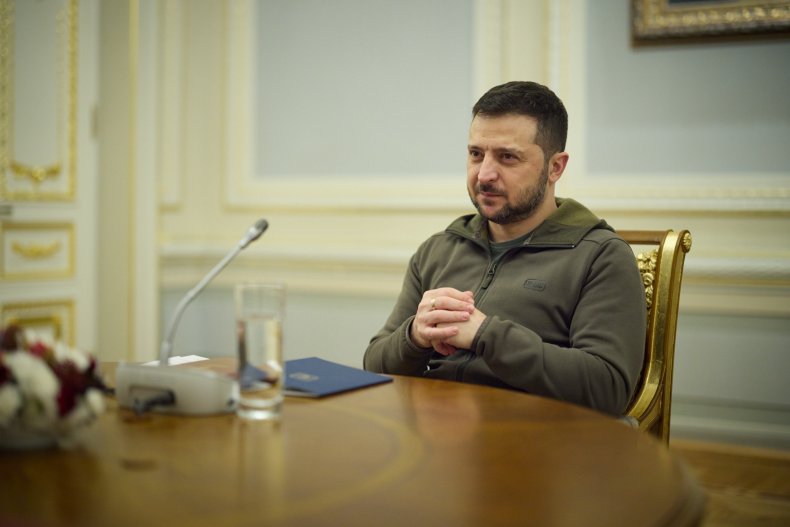For a few hours last week, a worst-case scenario in which war between the United States and Russia was imaginable.
When a U.S. "senior intelligence official" told the AP that Russian missiles had crossed into Poland and killed two people, alarm bells sounded. The willingness of the U.S. intelligence establishment to claim that it had been a Russian missile strike raised the very real possibility that Poland might have to invoke Article 5 of the NATO charter. Such an invocation would obligate the United States and the rest of the alliance to come to Poland's defense.
That would mean war between the United States and the Russian Federation—a conflict between two nuclear powers that would, by definition, constitute the start of World War III.
Fortunately, this nightmare scenario didn't play out. Thanks to the Internet, photos of the wreckage at the site in Przewodow, Poland soon circulated, making it clear that the American official should have kept his mouth shut until the details were confirmed. It turned out that the rocket was Ukrainian, not Russian.
The confirmation that the Polish deaths were the result of a Ukrainian anti-missile rocket falling into Polish territory caused sighs of relief around the globe. Yet both the White House and NATO Secretary General Jens Stoltenberg echoed Ukrainian President Volodymyr Zelenskyy's talking point that both dismissed the implications of the incident and declared that even though his country had technically done the damage, it was still Russia's fault since Russia had started the war.
The primary responsibility for all of the suffering the war has caused does belong to Russian President Vladimir Putin. His decision to invade Ukraine was both unjust and criminal.
Yet nine months after that invasion began, the war drags on. Massive Western assistance and the unexpectedly brilliant performance of the Ukrainian military foiled Putin's revanchism. Just as important, the incompetence of Moscow's armed forces ensured their being stalled by Kyiv's forces.
Many of Ukraine's supporters have spoken of Russia as if the Berlin Wall were still standing and the conventional armies of the Warsaw Pact remained on alert in East Germany, ready to invade Western Europe on the Kremlin's orders. But the notion that the army that has been steadily retreating from Ukraine constitutes a realistic threat to invade a NATO country is risible.
Nevertheless, Russia still possesses myriad nuclear weapons. That means Washington should be treating even the remote possibility of a direct conflict between NATO and the Russian Federation with the same caution that it exhibited during the Soviet era.
Instead, mainstream Western discourse about the conflict remains strident and belligerent. The Biden administration is more worried about not letting the war end in anything but an unequivocal Russian defeat than it is in preventing the conflict from spreading. Nor does the administration seem to be encouraging the parties to agree to peace talks, despite the prospect of more suffering once the grim Eastern European winter begins in earnest.
That's the context in which we must view the concerted effort to dismiss any worries about the Polish incident.

Chairman of the Joint Chiefs of Staff Gen. Mark Milley admitted that the likelihood of Ukraine successfully pushing Russia out of all of Ukraine's territory is "not high." Ukraine's success on the battlefield has been remarkable, but the odds that it can recover every inch of ground Russia has taken since February are slim. Ukraine's chances of retaking all of the Donbas or Crimea, which was seized in 2014, are nonexistent.
Yet those still appear to be the war aims of the Zelenskyy government. And, as Milley also said, the U.S. is letting Ukraine decide when peace negotiations should start. While there seemed little prospect of Zelenskyy doing so, Milley promised, "We will be there as long as it takes to keep Ukraine free."
In the meantime, the United States continues to send massive amounts of aid, with little accountability, to a corrupt Ukrainian regime. The Biden administration already got Congress to spend $54 billion on Ukraine. The same day as the Polish incident, it announced that it wanted another $37 billion in emergency aid to keep the fighting going.
This war effort is now costing nearly twice as much as the United States was spending on the war in Afghanistan in its final years—a price that Biden himself said was unacceptable when he initiated the disastrous American retreat from that country.
Washington thought that stopping the Taliban from declaring victory, resuming human rights violations, and possibly hosting other terrorist organizations wasn't worth the taxpayers' money. But no price seems to be too high to preclude an outcome returning the situation in Ukraine to the status quo ante of February 2022.
As we learned last week, an even more serious problem is that Biden is still blithely encouraging the very sort of scenario that he admitted might lead to "Armageddon."
With no end to the war in sight, the likelihood is that the tragedy in Poland won't be the last such incident in which the chance of drawing NATO into the fighting will arise. But Biden is still encouraging Zelenskyy's determination to continue fighting and expecting the American people to regard it as their privilege to pay for it.
What is needed is a more rational American policy on Ukraine. Such an approach would seek to eliminate the chances of conflict with a nuclear power that is not a conventional threat to Europe. It would also be cognizant of the humanitarian disaster that will likely only grow worse in the coming months, and would regard ending the war as its priority.
The Republican majority in the House of Representatives that will soon hold the nation's purse strings should insist on a rethinking of the country's blind devotion to a war that may have incalculable consequences. Sensible Democrats should stand with them.
Jonathan S. Tobin is editor-in-chief of JNS.org and a senior contributor to The Federalist. Follow him on Twitter: @jonathans_tobin.
The views expressed in this article are the writer's own.








